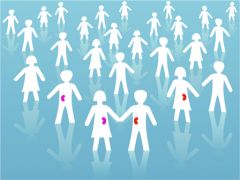Paying kidney donors pays off, say Canadian doctors
If living kidney donors were paid $10,000, transplants would increase by at least 5%, according to a study in the Clinical Journal of the American Society of Nephrology.

If living kidney donors were paid $10,000, transplants would increase by at least 5%, according to a study in the Clinical Journal of the American Society of Nephrology. The authors argue that payment would also save money and improve patient outcomes.
Lianne Barnieh, and Braden Manns, of the University of Calgary, in Canada, and their colleagues argue that payment could result in a cost saving of US$340 and a gain of 0.11 quality-adjusted life years over a patient’s lifetime. Increasing the number of kidneys for transplantation by 10% and 20% would translate into an incremental cost savings of $1,640 and $4,030 and a quality-adjusted life year gains of 0.21 and 0.39.
“Such a program could be cost saving because of the extra number of kidney transplants and, consequently, lower dialysis costs. Further, by increasing the number of people receiving a kidney transplant, this program could improve net health by increasing the quality and quantity of life for patients with end-stage renal disease,” said Dr Barnieh.
Bioethicist Arthur Caplan was dismissive. A market for kidneys would be possible, but not a market in hearts, he observed. This means that kidney donors would be motivated by money, but heart donors by altruism. Heart donors could become scarcer.
“The idea of trying markets to increase the supply of kidneys is the whack-a-mole of transplant policy. Every other year someone does a study, tosses out a model or just proclaims that a market will solve the kidney shortage problem. But there is more than money involved when it comes to body parts, and until proponents of payment can engage those concerns, it is not likely that we will see a shift from academic talk to political action.”
Michael Cook
Creative commons
organ donation
organ markets
